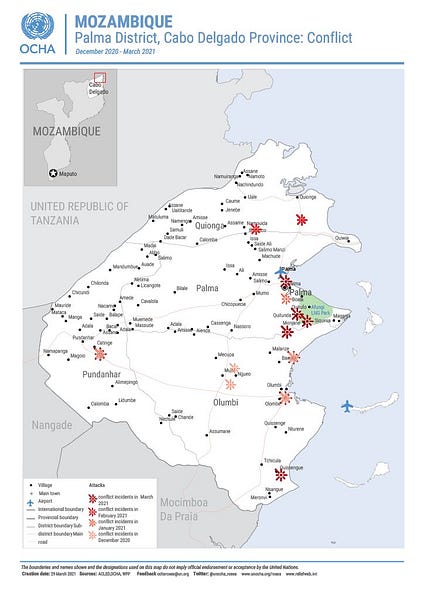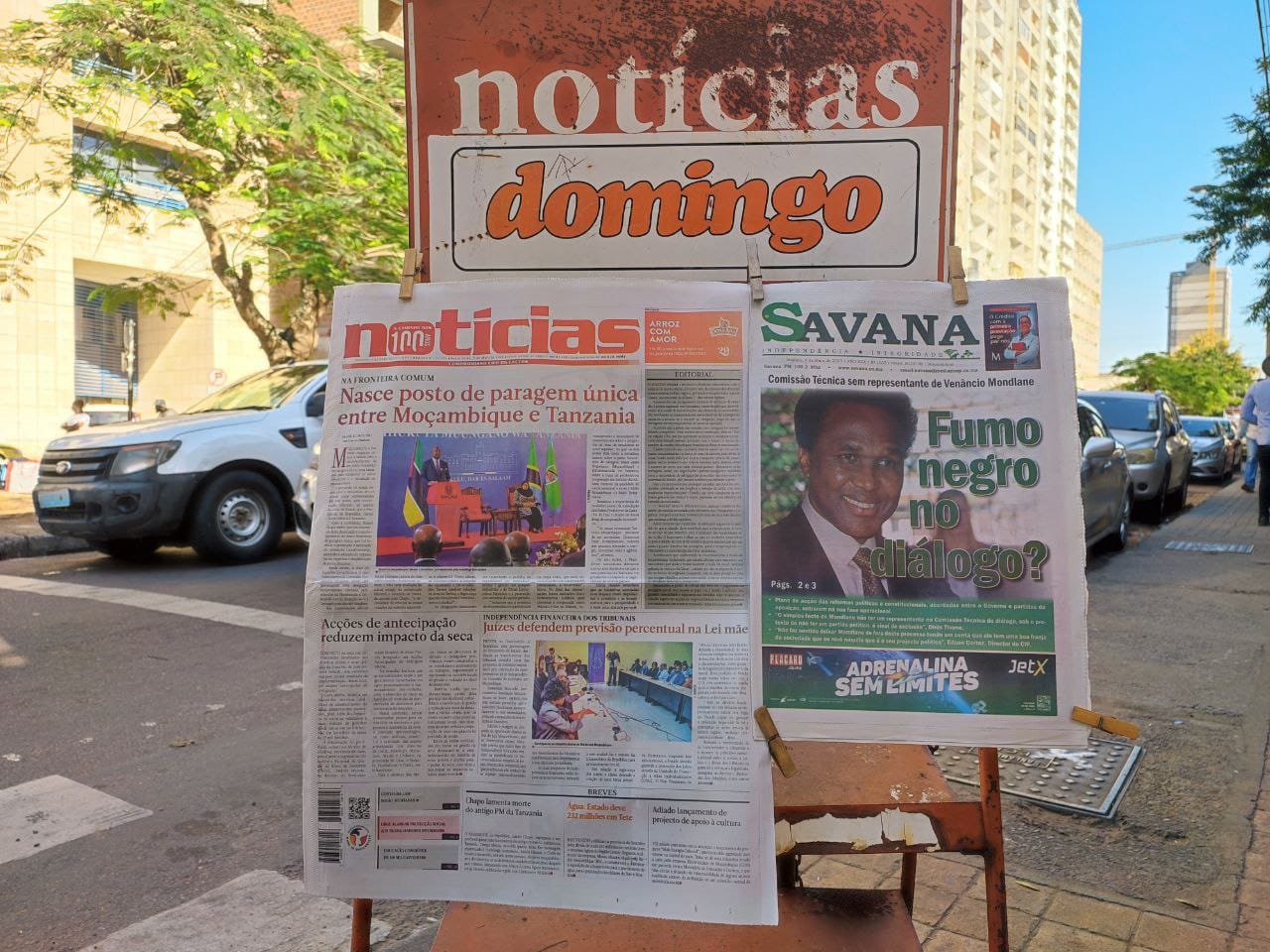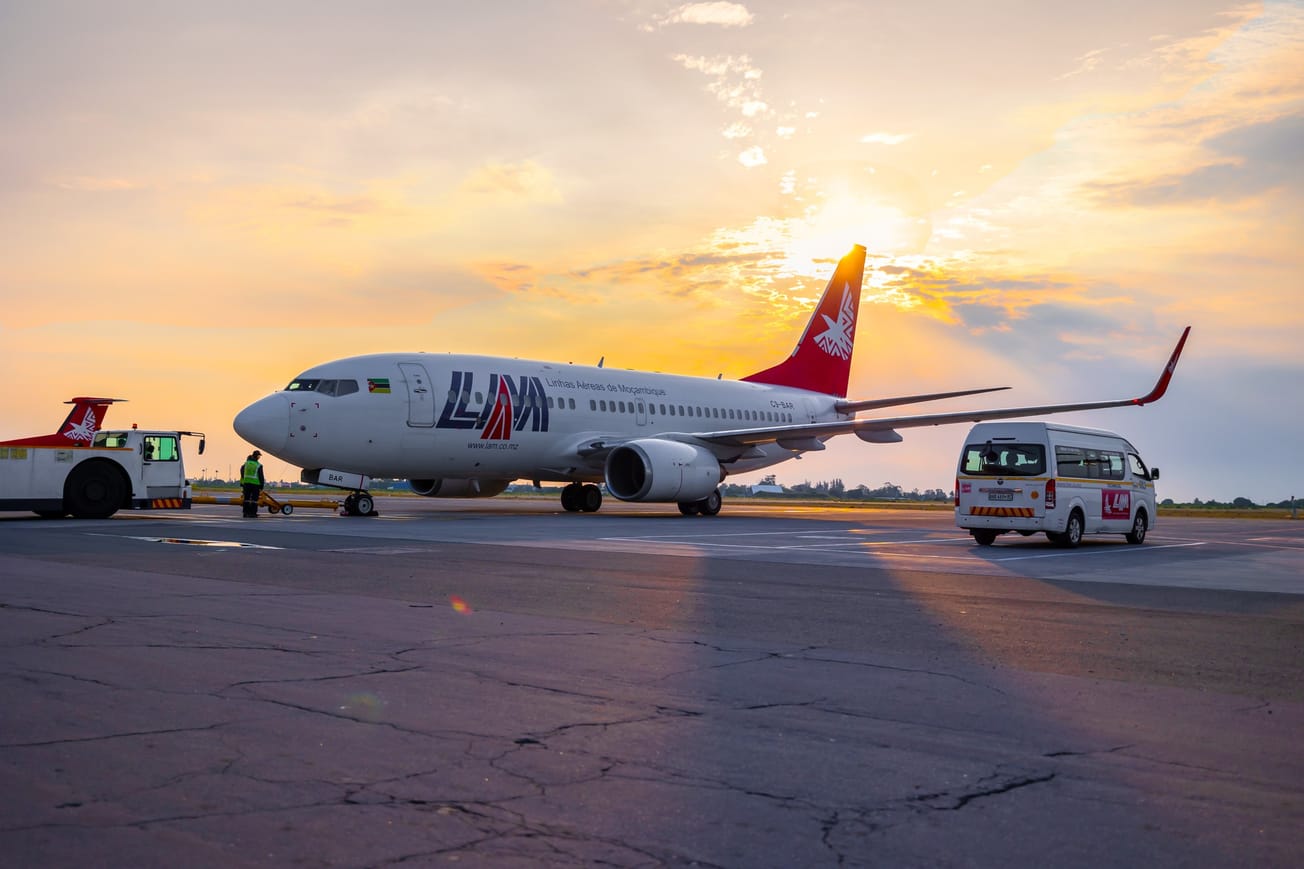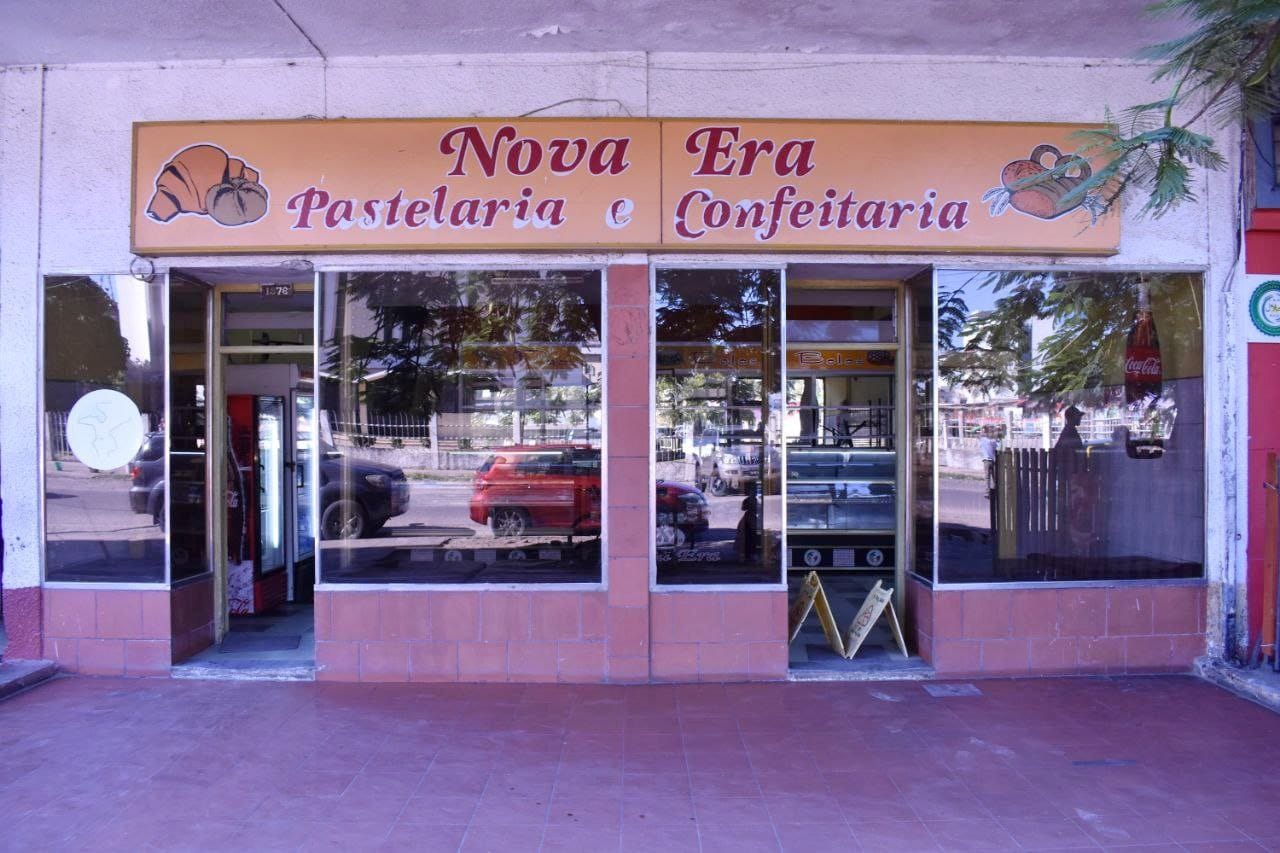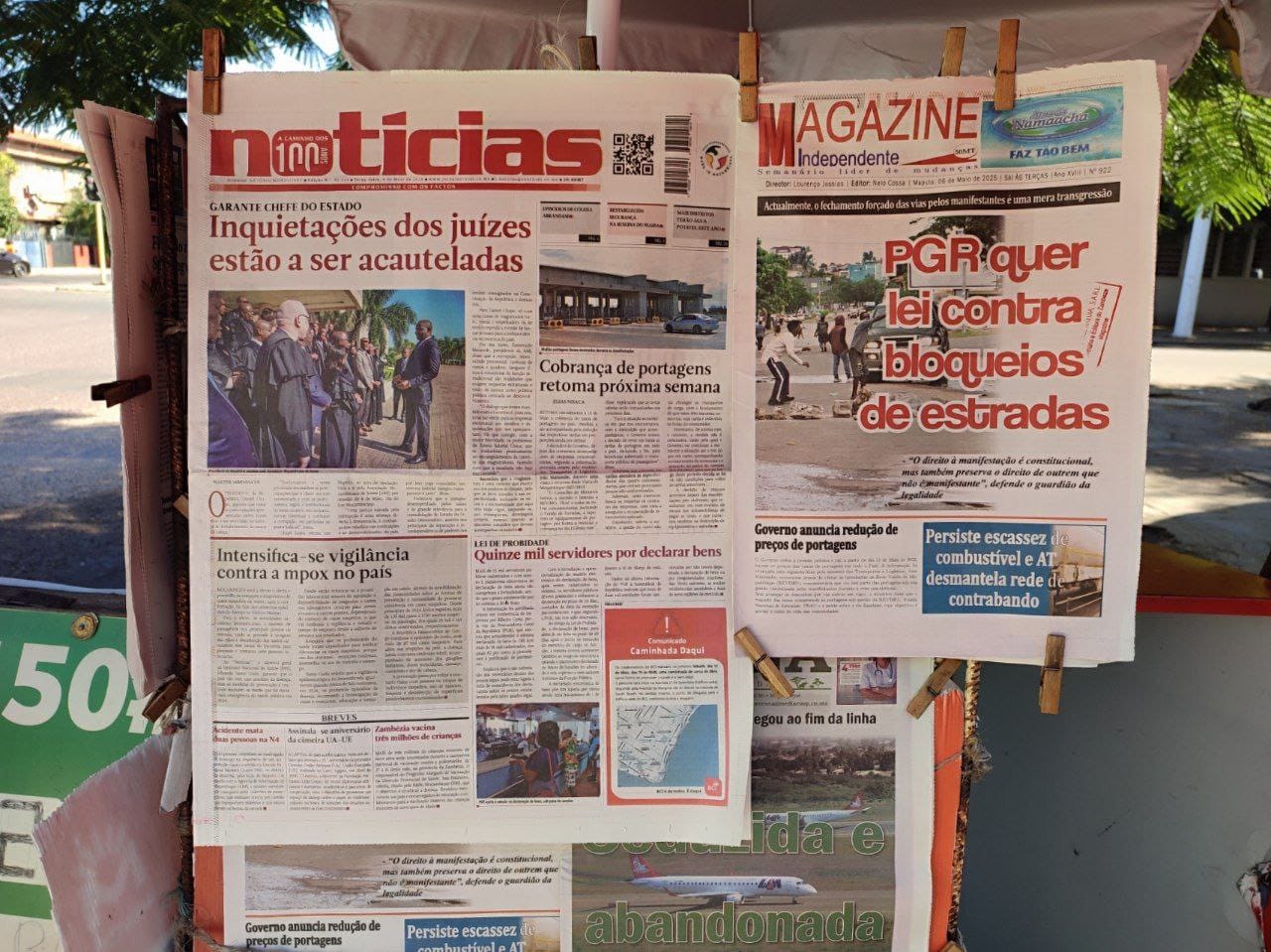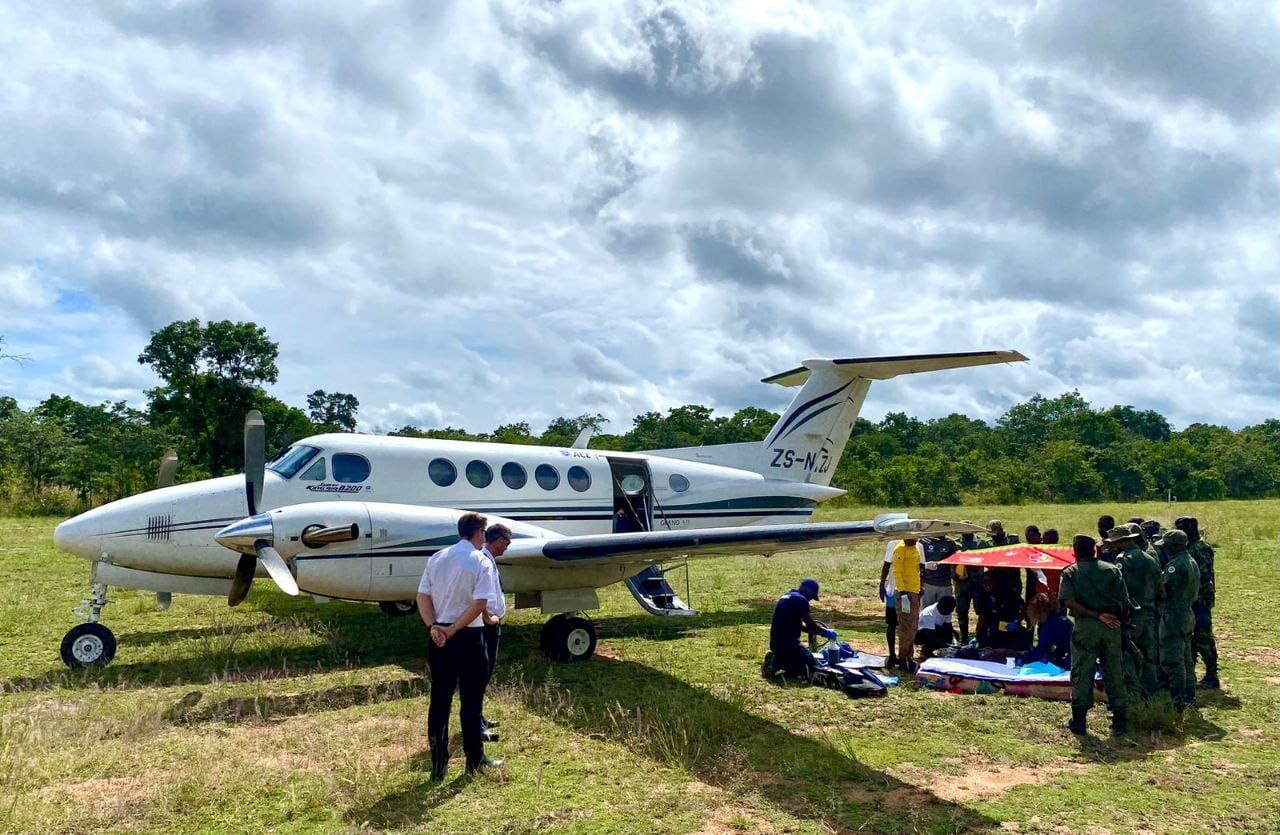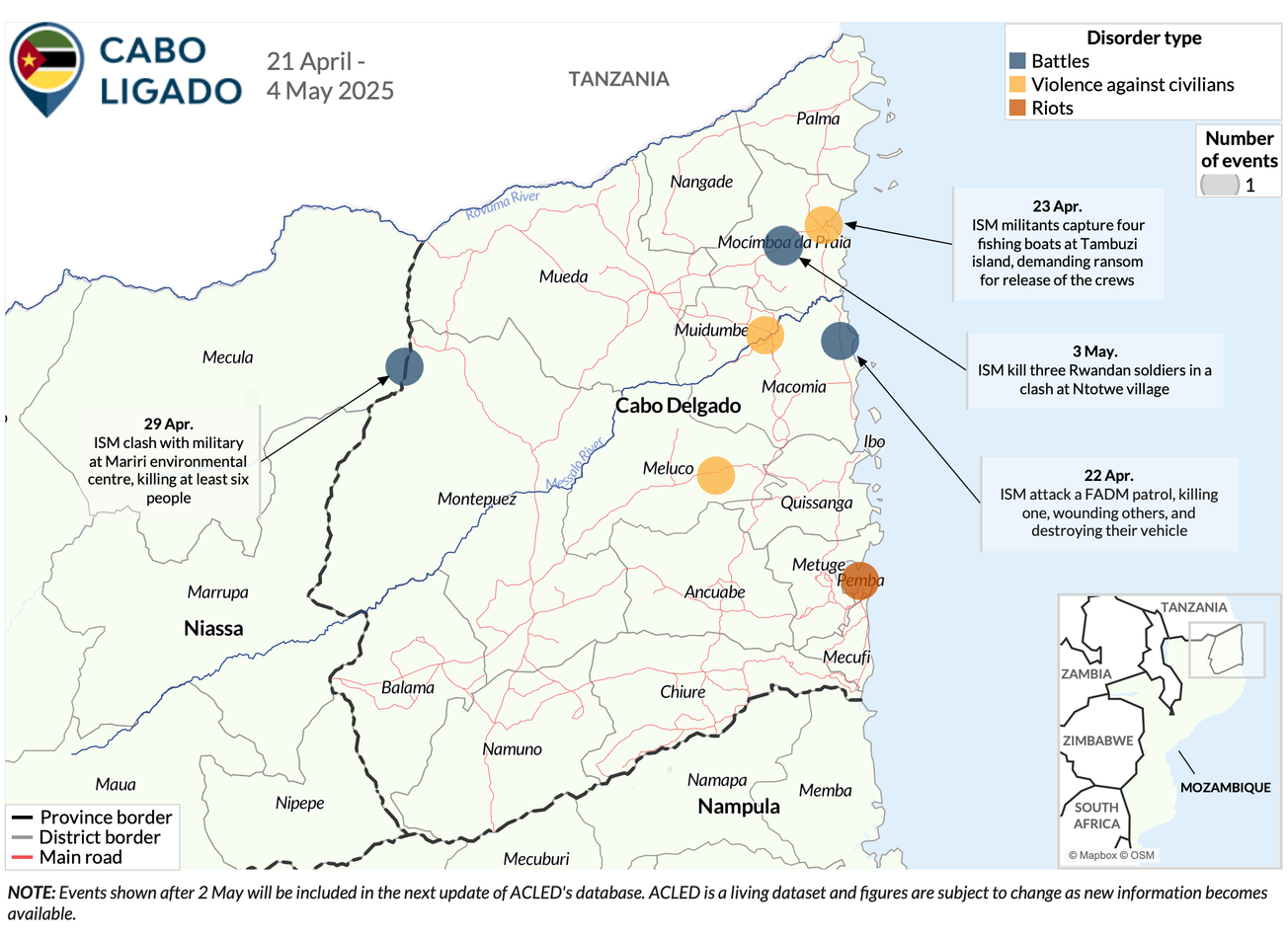Agenda:
- Today: Council of Ministers’ weekly meeting
The latest from Zitamar News:
Cabo Delgado insurgents kill again in attack on coastal Macomia
Insurgents attacked coastal Macomia last Wednesday, at the same time as another group of insurgents attacked the town of Palma, further north in Cabo Delgado
From the Zitamar Live Blog:
Follow on Telegram or on our website
Covid-19 cases rise by 319 over weekend
There were also six deaths reported on Saturday and Sunday, and 201 recoveries
The best of the rest:
- Government said to control half of Palma, but hardest task remains, warns mercenary boss Dyck (Mediafax, AP, RTP, BBC, Carta de Moçambique)
- Islamic State claims control of Palma and 55 dead (Mediafax, The Associated Press, RFI, Reuters)
- Refugees from Palma head for Maputo and towards Tanzania (Mediafax, Lusa, Lusa, Lusa)
- Public officials are Palma insurgents’ preferred targets (Mediafax)
- Rising oil price could drive inflation, central bank warns (Canal de Moçambique)
- Chair of elections commission resigns (AIM)

Government said to control half of Palma, but hardest task remains, warns mercenary boss Dyck (Mediafax, AP, RTP, BBC, Carta de Moçambique)
Half of the town of Palma is back under control of government forces, according to reports from journalists who were flown over the town yesterday by the Mozambican military. Broadcaster RTP adds that the insurgents have apparently been beheading their dead comrades to prevent their corpses being identified. But the job of regaining control of all of the town “ain’t going to be easy,” according to Lionel Dyck, head of the DAG mercenary group contracted by the government to provide helicopter support. He told the BBC that DAG’s contract was coming to an end on 6 April — but said there would be a big gap when his men left. He also criticised the government’s, and French energy company Total’s, response to and level of preparedness for the Palma attack, which took place near Total’s natural gas project site. The military only joined the fight on Sunday, he said, having remained on the project site until then; Total, meanwhile, had no evacuation plan for this predictable eventuality, and also refused to refuel DAG’s helicopters which were fighting insurgents and airlifting people from danger. Carta de Moçambique, meanwhile, claims Palma is “almost liberated” — but Dyck warned that the remaining job was to go house to house to root out remaining terrorists, which he said was the hardest job in warfare.
Carta’s editor, Marcel Mosse, was forced to backtrack from a claim that Palma had been liberated, but local media is under strong pressure from government officials to not publish anything that looks damaging for the government security forces.
A source who spoke to refugees from Palma told Zitamar yesterday that the terrorists have deliberately occupied half of the town, and left the other half free — echoing what happened in Mocímboa da Praia, where the government was able to claim it had regained part of the town, but have since been unable to fully dislodge the insurgents. Palma’s geography favours this tactic since there is a clear separation between downtown, near the beach, and the upper town where government buildings, hotels and banks are located. The same thing happened in Quissanga, another district capital with similar characteristics, which was occupied by the Islamist insurgents last April for several weeks, with the government and rebels holding separate areas of the town. Lionel Dyck did a big round of media interviews yesterday, clearly venting his frustration with the Mozambican government and perhaps looking for an extension of DAG’s contract, though he may now have burned too many bridges. Total’s apparent refusal to refuel DAG’s helicopters has generated outrage; but it seems the company, understandably, draws the line at providing material support to armed mercenaries. RTP’s report on the beheading of insurgents presumably comes from intelligence from the Mozambican military accompanying their reporting trip — who would have an interest in portraying the beheaded corpses in Palma as dead insurgents rather than civilians or even government forces. IS-watchers said they'd never heard of IS beheading their fallen comrades before.
Islamic State claims control of Palma and 55 dead (Mediafax, The Associated Press, RFI, Reuters)
The Islamic State has claimed responsibility for the attack on the town of Palma in northern Mozambique which has left bodies strewn in the streets, thousands displaced and many still missing. The group announced through its Amaq news agency on Monday that insurgents are now in control of the town and had killed more than 55 people. Fighting continued on Monday, with heavily armed rebels battling army, police and the Dyck Advisory Group (DAG), a private military company contracted by the Mozambican police. The Associated Press (AP) cited DAG director Lionel Dyck as saying that an attack had been expected now that the rainy season had ended, and that regaining control of the town would be “difficult unless there’s a competent force put in place with good command and control.” However, without control of Palma, Total’s operation of its nearby natural gas project is jeopardised, analysts say. The company has suspended operations and is repatriating employees, RFI reports. “The attack on Palma is a game-changer in that the rebels have changed the narrative,” one expert who returned from Palma earlier this month told AP. “This is a trained and determined force that has captured and held one town and is now sustaining a battle for a very strategic centre,” they said.
Jasmine Opperman, a senior researcher at ACLED (and with Zitamar News through the Cabo Ligado project), commented that an imminent attack on Palma was expected and warnings had been made to appropriate authorities. She has argued that it was a serious strategic mistake to leave Mocimboa da Praia occupied by the rebels since August, 2020 — allowing them to have a base for recruitment and regrouping.
Refugees from Palma head for Maputo and towards Tanzania (Mediafax, Lusa, Lusa)
Flights carrying refugees from the terrorist attack on the town of Palma in Cabo Delgado province were expected to continue until yesterday, the Lusa agency reported, citing a source at French oil and gas company Total. The flights were taking them to the capital Maputo from Pemba, the capital of Cabo Delgado, where refugees had arrived by sea. The first flight took off on Sunday afternoon, three hours after the first ship from Palma carrying 1,300 refugees arrived in Pemba. The flights are mainly carrying workers from Total’s natural gas production project. Mediafax and Lusa also report that some refugees have fled north towards Tanzania, with 200-500 people arriving in the border settlement of Namoto, but that they need help crossing the Rovuma river in order to enter the country. Separately, a South African military plane has been sent to Pemba to repatriate the body of a South African who died during the attack, South Africa’s foreign ministry said.
Public officials are Palma insurgents’ preferred targets (Mediafax)
Civil servants were targeted by terrorists throughout their attack on the town of Palma in Cabo Delgado province, according to survivors. The survivors said they had heard the insurgents talk about how civil servants influenced the government’s legislation and made it difficult to implement Islamic religious norms, such as sharia law. When the terrorists learned that many civil servants were seeking refuge in the Hotel Amarula, including the district administrator, it became one of their main targets, but the prompt reaction of the Defence and Security Forces prevented a slaughter there, they added. Mediafax reports that civil servants in the neighbouring district of Nangade, many of whom are in empty villages, fear for their lives but are not leaving their posts, as they were told that they would not get paid if they did so. As refugees make their way out of Palma into other villages and towns, 14 unaccompanied children aged six to 12 arrived in the town of Nangade, Mediafax reported. Since the beginning of the insurgency, the number of orphaned children has increased, and at the moment Nangade district is low on food and other essentials, due to the high influx of refugees.
Rising oil price could drive inflation, central bank warns (Canal de Moçambique)
The rising price of oil on international markets could lead to prices rising in Mozambique, the Bank of Mozambique has warned. The central bank’s latest economic situation and inflation outlook noted that the price of Brent crude oil had risen by 24.8% between 27 January and the second week of March. It cited recovering global economic demand and cuts in production by oil-producing countries as reasons. However, the bank also said that some Mozambican exports, such as coal and aluminium, were showing a tendency to rise in price, which would increase export revenues.
The metical has appreciated around 10% against major foreign currencies in the last three weeks, leaving observers scratching their heads, given the context of recent developments in Mozambique.
Chair of elections commission resigns (AIM)
The chair and spokeswoman on the National Elections Commission (CNE) has resigned only three days after being elected to the post by commission members. Alice Banze said on 22 March that she had not been given the chance to formally accept the job, and that, having considered its responsibilities and the responsibilities of her other jobs, she had decided to resign. AIM reported that Banze remains as a member of the CNE, thus retaining the “handsome” salary and benefits including a housing allowance, car and diplomatic passport. It also said that CNE membership was supposed to be a full-time job, and said that this should prevent her from undertaking other work. The CNE will now have to meet to elect a successor. Banze’s predecessor Paulo Cunica wanted to keep the job, was defeated in the vote.
Announcements
- The Bank of Mozambique said that it and German development bank KfW had launched a subsidy scheme to provide emergency support for small and medium-sized enterprises affected by covid-19
- The National Institute of Statistics published indices of industrial production, industrial production prices and industrial economic activity up to December 2020 (see here)
- The National Institute of Petroleum confirmed that Total had suspended its planned resumption of construction work on its natural gas production project in Cabo Delgado province, due to the terrorist attack on Palma (see here)
- Syrah Resources released its annual report for 2020 (see here)

